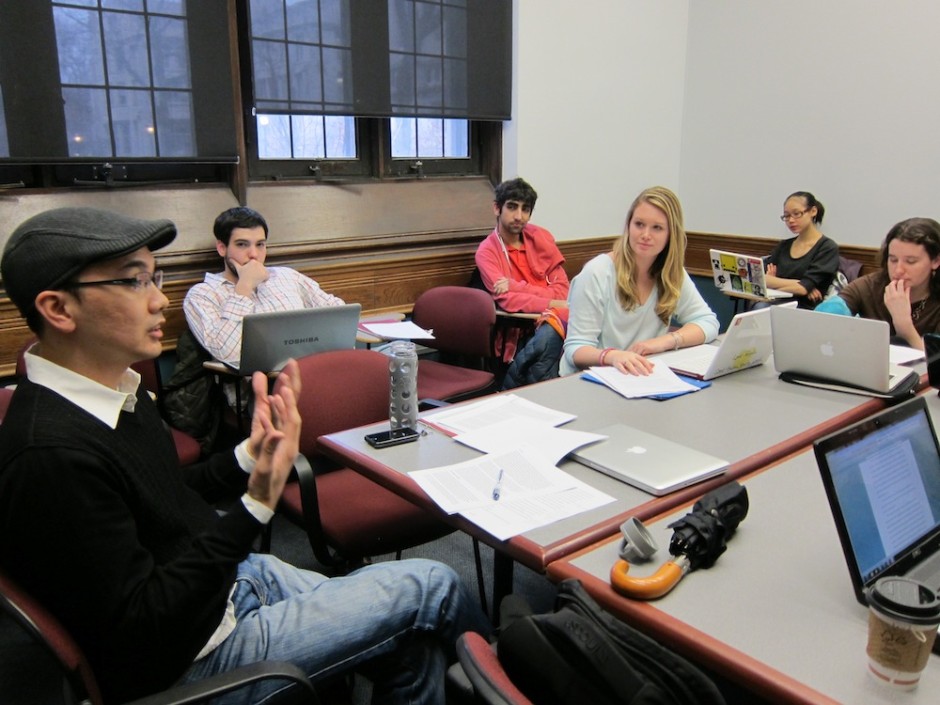Editor’s Note: Guest Blogger Rachael Allen talks about her experience in Creative Writing Classes.
* * *
A good creative writing class feels a bit like growing up. You arrive eager and breathy, whipping out efforts that while earnest are lacking. You listen and admire and emulate. You judge and then learn to empathize. You make friends and feel vulnerable and must continually prove yourself. Through these efforts, if you write and write and write, you hopefully come out with a better sense of yourself and a fat folder of writing on your desktop.
I started taking creative writing classes in high school, my school luckily being one with the funds and interest to have an arts program. That class didn’t feel like an academic space; rather, it was a space for me and my classmates to put our minds and emotions—the confusing, the hopeful, the impossible—on the table and translate them into good writing.
We learned the pitfalls: the dramatic and sad and thereby (so we think) deep story, the cliché, the imagery that tries hard to break cliché but makes little sense, the breathless and flowery and confusing sentence structure (like this one?) that does little for the story’s substance. We all want to be good and original and, in our initial (and perhaps permanent) desperation, over-translate this desire onto the page. We forget how strange we are in our everyday lives. We forget that originality doesn’t mean rebuking and over-dramatizing our own normalities, but pointing out the absurdities and coincidences of everyday life.
But as new, baby writers, we don’t often trust what we know. Creative writing classes give us the space to wander and the people to pull us back in towards good, honest storytelling. Writing is so linked to our sense of ourselves, it’s often difficult to separate our emotional, confused, real-world selves from our restrained, articulate (but just as emotional) writer selves. I wrote about parents and children obsessively last year, not realizing this trend until my professor pointed it out. She started asking about my life and I told her: both my siblings just got married; I learned my sister was pregnant; I was in my first relationship; and, above all, my first year away at college made me think about my own parents in relation to the immediacy of independence I felt. I was writing about growing up and growing up through writing.
Creative writing classes get us out of our own heads, ironically. Writing is an inherently self-absorbed task, yet with a critical audience of classmates and a mentor of a teacher, you learn which parts are indulgent-you and which parts are honest-you. You learn to funnel better quality onto the page as you assess yourself, your thoughts and your world with more honesty. The abundance of criticism and ensuing revision ultimately does wonders for your confidence—and your nerves.
I don’t ever want to stop taking creative writing classes. Once I finish college, I’m sure I’ll feel somewhat lost without the structure of school. I’ll learn to stand a little taller on my own, and hopefully not just by burrowing into the safety of what I know. I’ll want the support of a creative writing class (or its equivalent) not only to motivate my writing but also to induce vulnerability in me, to make me reconsider my writing, myself. We can sit forever, reading and writing and living in different worlds, but it’s the workshops, the mentors, the classmates—the people who care about stories as much as you do—that make you feel as if you’re truly progressing, growing.
* * *

Rachael Allen is a sophomore at Bowdoin College studying English and Italian. She serves as editor-in-chief of Bowdoin’s arts and literary magazine, The Quill, and news editor of Bowdoin’s newspaper, The Bowdoin Orient. She loves to write (and read) both fiction and nonfiction, including monthly columns for her local newspaper. You can read these columns as well as other work on her blog: https://rachaelallenblog.wordpress.com.


